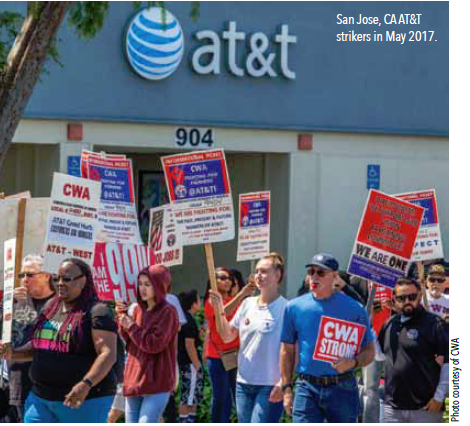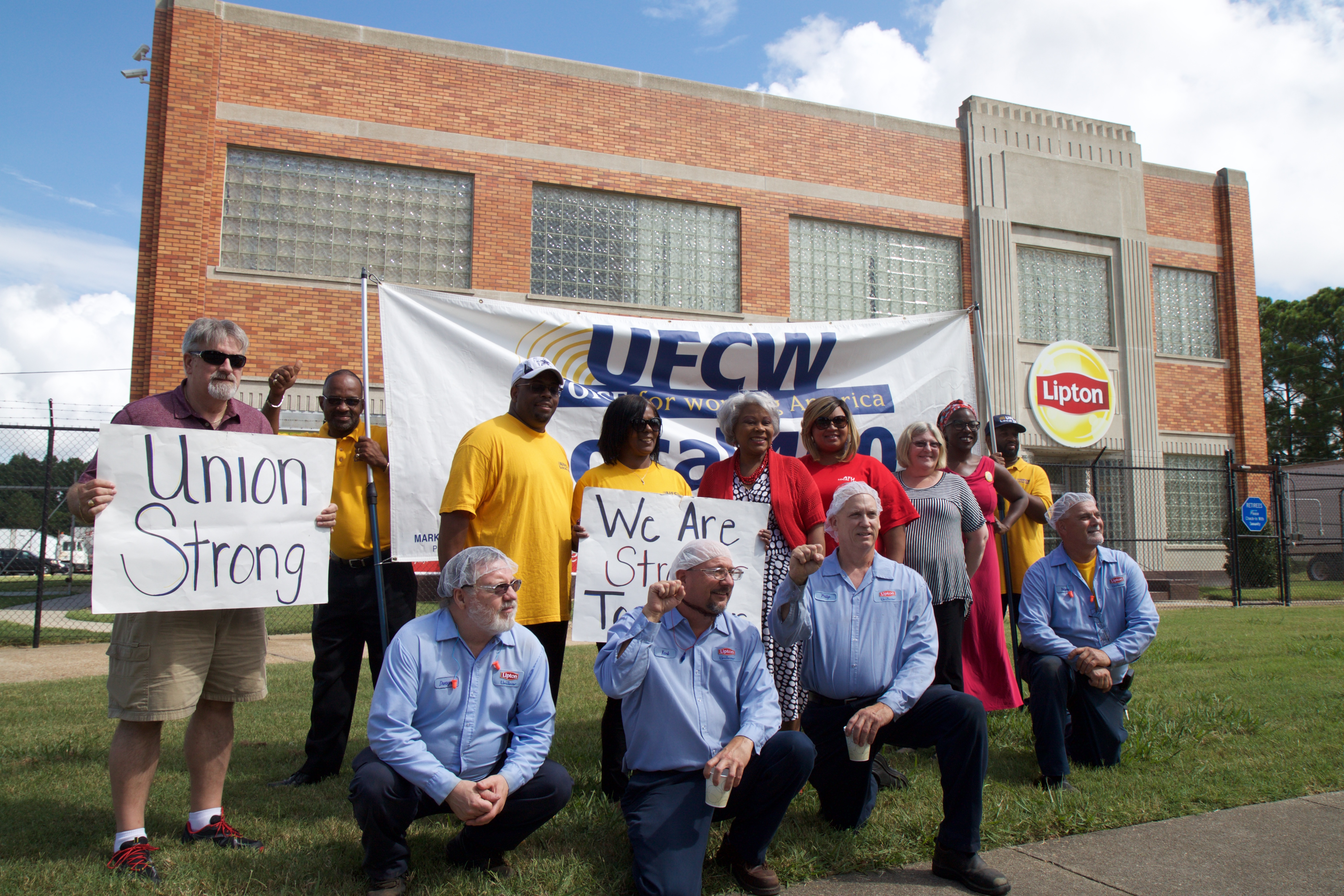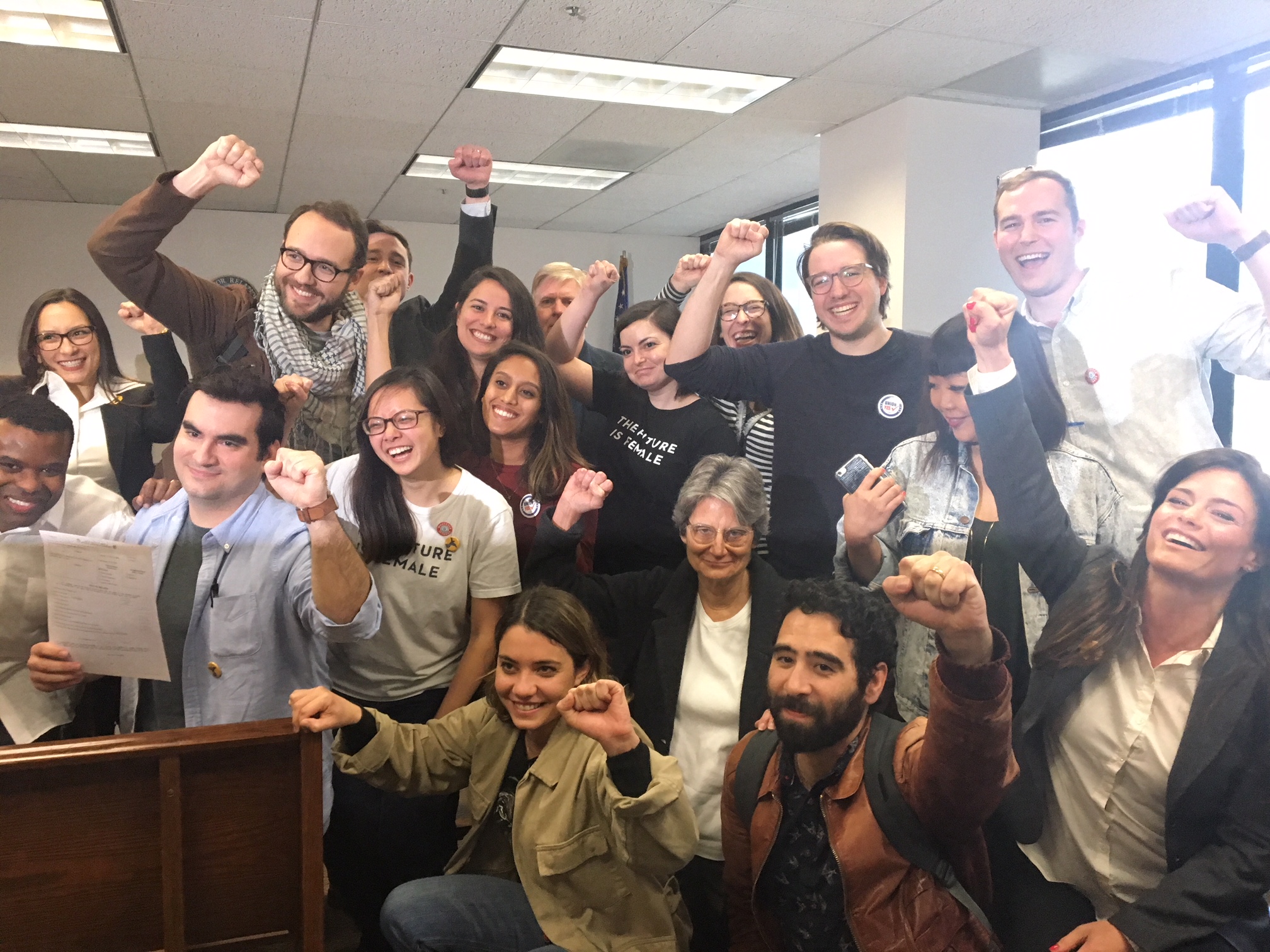Labor News
March 1, 2018
Photo courtesy of the NewsGuild-CWA
(This article first appeared in the March-April 2018 issue of the American Postal Worker magazine)
L.A. Times’ Newsroom Unionizes in Landslide Vote
Reversing 136 years of management rule, 85 percent of employees working in the Los Angeles Times’ newsroom voted to join The NewsGuild-Communications Workers of America, in a 248-44 vote on Jan. 4.
Reporters, copy editors, graphic artists and photographers organized for months leading up to the vote, hanging up pro-union signs in the newsroom and sharing stories of why they were voting “yes” on social media.
Transportation reporter Laura Nelson explained, “I love the Los Angeles Times, and I want to make it better. Big breaking news stories and investigations are proof that we’re at our best when we collaborate. We should stand together to fight for our workplace, too.”
NewsGuild President Bernie Lunzer said the victory is part of a national trend of workers raising their voices. “The media landscape is changing, with the demands of private profiteers pushing against the hallowed traditions of quality journalism. The journalists of the L.A. Times are taking control of their own future,” he said.
Celebrate May Day
May Day, also known as International Workers Day, was born in the 1880s in Chicago during the fight for the eight-hour work day.
The working-class holiday is celebrated in 80 countries (although it is not recognized in the United States as a federal holiday).
The APWU encourages all members to participate in any events in their area. If your city or town is not hosting an event, and you want to participate in one, reach out to local labor groups and other sister unions about planning something in your area.
If you take part in an event, please send pictures of you, your family and/or co-workers to communications@apwu.org for a chance to be featured on the APWU website or in future publications. Remember to wear your union gear!
Nearly 1M German Metalworkers Negotiate Precedent-Setting Contract
After threats of an indefinite strike and weeks of one-day walkouts, 900,000 German metalworkers, who are members of the union IG Metall, secured higher wages and benefits in their new collective bargaining agreement.
One new breakthrough of this contract is a worker will now have the option to temporarily cut their work week from 35 to 28 hours for a period of six to 24 months. Their salary will reflect the part-time status, but the worker is guaranteed their full-time position when they come back.
“For too long, work time flexibility has been a privilege of employers,” Joerg Hoffman, chair of IG Metall said. “From now on employees will have the right to opt for a reduced working week… The collective agreement is a milestone on the way to a modern, self-determined working world.”
The union also secured a 4.3 percent wage increase, a supplementary monthly income and additional days to take leave to care for young children or older parents.
AT&T Wireless Workers Approve Contract
After months of taking it to the streets, AT&T wireless workers overwhelmingly approved a four-year contract in January. The contract between Communications Workers of America (CWA) and AT&T, covering 21,000 workers in 36 states, “rolls back offshoring and outsourcing and sets a new standard for wireless retail and call center jobs in America,” according to a union press release.
Workers came together and fought hard for the new agreement, walking off the job for three days in May 2017 – the largest national retail strike in American history – forcing hundreds of stores to be shuttered.
Some highlights of the contract include, according to the press release, “a guaranteed 80 percent increase in the portion of customer service calls handled exclusively by wireless workers who are CWA members; and first-ever job security language that guarantees a job for workers whose store or call center is closed or whose job title is eliminated.”
Brandon Beck, an AT&T wireless retail worker in San Diego, CA, said, “This contract shows that wireless workers like me will no longer put up with companies that squeeze workers. We can breathe easier knowing that service to our customers will be better and our future will be brighter. Quality jobs are here to stay and grow.”
However, hundreds of AT&T wireless workers not living in the 36 states covered by this contact are still fighting. In February, they released a Statement of Principles, calling for:
- “Fair wages, commissions, and benefits;
- “Respect for employees as people and as workers;
- Support, training, and communication with management;
- “Honesty and integrity in customer relations.”
For more information, visit wirelessworkersunited.org.
 British Postal Workers Reach Agreement with Royal Mail
British Postal Workers Reach Agreement with Royal Mail
After months of workers ready to strike, British postal workers represented by the Communication Workers Union (CWU) reached an agreement with their employer, privatized Royal Mail. Terry Pullinger, CWU Deputy General Secretary (Postal), said that the new contract remedies “all the issues of concern and all the issues we campaigned on.”
“I absolutely believe that we have now, with this agreement, laid the foundation for the right attitude and approach to the future of our business,” Pullinger said in a video to members.
CWU officers call the agreement “ground breaking” because it secures one pension plan for every member. A union spokesperson said the agreement also “increases job security because of the assurances that we’ve got for the ratio of full-time to part-time.” According to the union, the agreement will ensure CWU members will have employment and pension security moving forward.
As this issue goes to press, the agreement still needed to be ratified by the CWU membership and approved by the Royal Mail board.

Photo courtesy of UFCW Local 400
Lipton Tea Workers Ratify First-Ever Contract
In the spring of 2016, several workers at the Lipton Tea plant in Suffolk, VA – that produces most of the tea consumed by North America – reached out to the United Food and Commercial Workers Union (UFCW) about possibly forming a union. They were being forced to work up to a 12-hour shift for as many as 13 days in a row, with only one day off in between.
In August 2016, the majority of workers voted to unionize and a bargaining committee formed. After nearly a year of negotiating, workers ratified their first-ever contract in July 2017, with a 106-9 vote. The agreement, which covers 240 employees, includes improvements to working conditions and more than $4,000 a year in health care cost savings, plus better coverage. The contract also puts strict limits on overtime.
“I didn’t know much about unions, but I knew something had to be done. Enough was enough,” said Philip Surace, a Lipton mechanic. “I would encourage anyone who wants to make their workplace better to do the same thing we did.”
Supreme Court to Hear Janus v. AFSCME
As this issue is printing, on Feb. 26, the U.S. Supreme Court is hearing a case that will affect many public-sector unions across the country: Janus v. AFSCME.
The National Right-to-Work Foundation is backing the case against the American Federation of State, County and Municipal Employees (AFSCME). If the Supreme Court rules in the National Right-to-Work Foundation’s favor, state, county and municipal employees working under a union contract will be able to benefit from safe working conditions, pay raises, job security, and other negotiated benefits in their collective bargaining agreement, but not have to pay any of the cost associated from negotiating or enforcing it. This drains the financial resources for many public-sector unions.
“The Janus case is a blatantly political and well-funded plot to use the highest court in the land to further rig the economic rules against everyday working people,” said Lee Saunders, president of AFSCME.
For updates, visit afscme.org and stay tuned for more information about the case in upcoming issues of The American Postal Worker.




